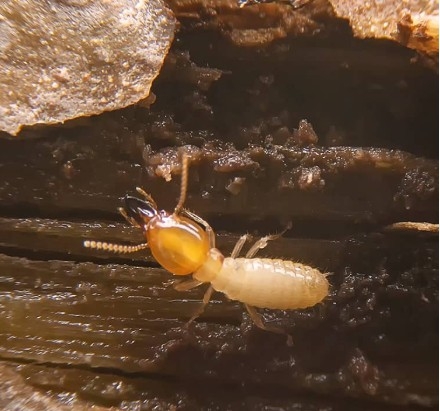The Importance of Estimates & Inspections in Pest Control

When it comes to maintaining a safe and healthy home or business, pest control is one aspect you simply can't afford to overlook. However, jumping straight into treatment without understanding the scope of the problem can lead to wasted money, ineffective solutions, or even further infestation. That’s why professional Estimates & Inspections are the foundation of any successful pest management plan.
In this article, we’ll explore why pest control estimates and inspections are so essential, what the process involves, and how property owners can benefit from making this their first step in pest management.
Why Pest Control Estimates & Inspections Matter
Pests are sneaky. By the time you see them, they’ve likely been around for a while—and possibly multiplied. Whether it’s rodents, termites, cockroaches, or bed bugs, identifying the full extent of the issue is critical before applying any treatment. That’s where estimates and inspections come in.
1. Accurate Identification of Pest Species
A professional inspection will identify exactly what pest you’re dealing with. Not all ants or beetles are created equal—some require targeted treatments based on species. Misidentifying a pest can lead to the wrong approach, rendering treatment ineffective and wasting money.
2. Evaluating the Severity of Infestation
It’s not just about what pests are present, but how widespread the infestation is. A detailed inspection will determine if the problem is isolated to one area (like a kitchen or basement) or if it has spread throughout the property. This affects not only treatment options but also the overall cost.
3. Tailored Treatment Recommendations
Once the inspection is complete, the pest control company provides a detailed estimate. This includes recommended treatments, frequency of service, products used, and the total cost. Without an inspection, companies would have to give vague or overly broad estimates—not ideal for your wallet or your peace of mind.
What Happens During a Pest Control Inspection?
A professional pest control inspection is thorough and methodical. Here’s what to expect:
-
Interior Inspection: The inspector checks common trouble spots such as kitchens, bathrooms, basements, attics, and behind appliances. They're looking for droppings, nests, signs of gnawing, stains, and live or dead insects.
-
Exterior Inspection: This includes the foundation, windows, doors, roofline, vents, and any entry points pests might be using. Landscaping features like woodpiles, mulch beds, and standing water are also assessed.
-
Moisture & Structural Checks: For pests like termites and carpenter ants, inspectors use moisture meters and probes to check for wood damage or moisture buildup that could attract insects.
-
Documentation: The inspector records all findings, takes photos if necessary, and compiles a comprehensive report outlining the issues and recommendations.
Understanding the Estimate
After the inspection, you’ll receive a written estimate that outlines:
-
The type of pests found
-
The recommended treatment approach
-
Estimated number of visits
-
Chemical or non-chemical methods to be used
-
Pricing breakdown
-
Warranty or guarantees
Reputable pest control companies will walk you through the estimate and explain the reasoning behind their recommendations, helping you make an informed decision.
Benefits of Getting Estimates & Inspections First
1. Save Money in the Long Run
Paying for an inspection may seem like an extra step, but it prevents overspending on unnecessary or ineffective treatments.
2. Avoid Property Damage
Termites, rodents, and even some insects can cause serious structural damage if left unchecked. An inspection can catch these issues early.
3. Peace of Mind
Even if no major pest problem is found, having a clean bill of health from a certified pest control professional is reassuring.
4. Customized Plans
Every property is different. Your pest control needs will vary based on location, structure, usage, and history. A proper inspection ensures your treatment plan is tailored to you.
5. Regulatory Compliance
For commercial properties, regular inspections may be required to comply with health and safety standards, especially in food service, hospitality, and healthcare.
How to Choose a Pest Control Company for Inspections
-
Licensed & Insured: Always verify credentials.
-
Transparent Pricing: A good company offers detailed estimates with no hidden fees.
-
Experience: Look for companies that specialize in your specific pest issue.
-
Positive Reviews: Check online ratings and testimonials.
-
Guarantees: Choose providers that stand behind their work with service guarantees.
Conclusion
When dealing with pests, knowledge is power. A thorough inspection followed by a detailed estimate sets the foundation for successful pest management. It’s the difference between a temporary fix and a long-term solution.
- Questions and Answers
- Opinion
- Motivational and Inspiring Story
- Technology
- Live and Let live
- Focus
- Geopolitics
- Military-Arms/Equipment
- Security
- Economy
- Beasts of Nations
- Machine Tools-The “Mother Industry”
- Art
- Causes
- Crafts
- Dance
- Drinks
- Film/Movie
- Fitness
- Food
- Games
- Gardening
- Health
- Home
- Literature
- Music
- Networking
- Other
- Party
- Religion
- Shopping
- Sports
- Theater
- Health and Wellness
- News
- Culture

